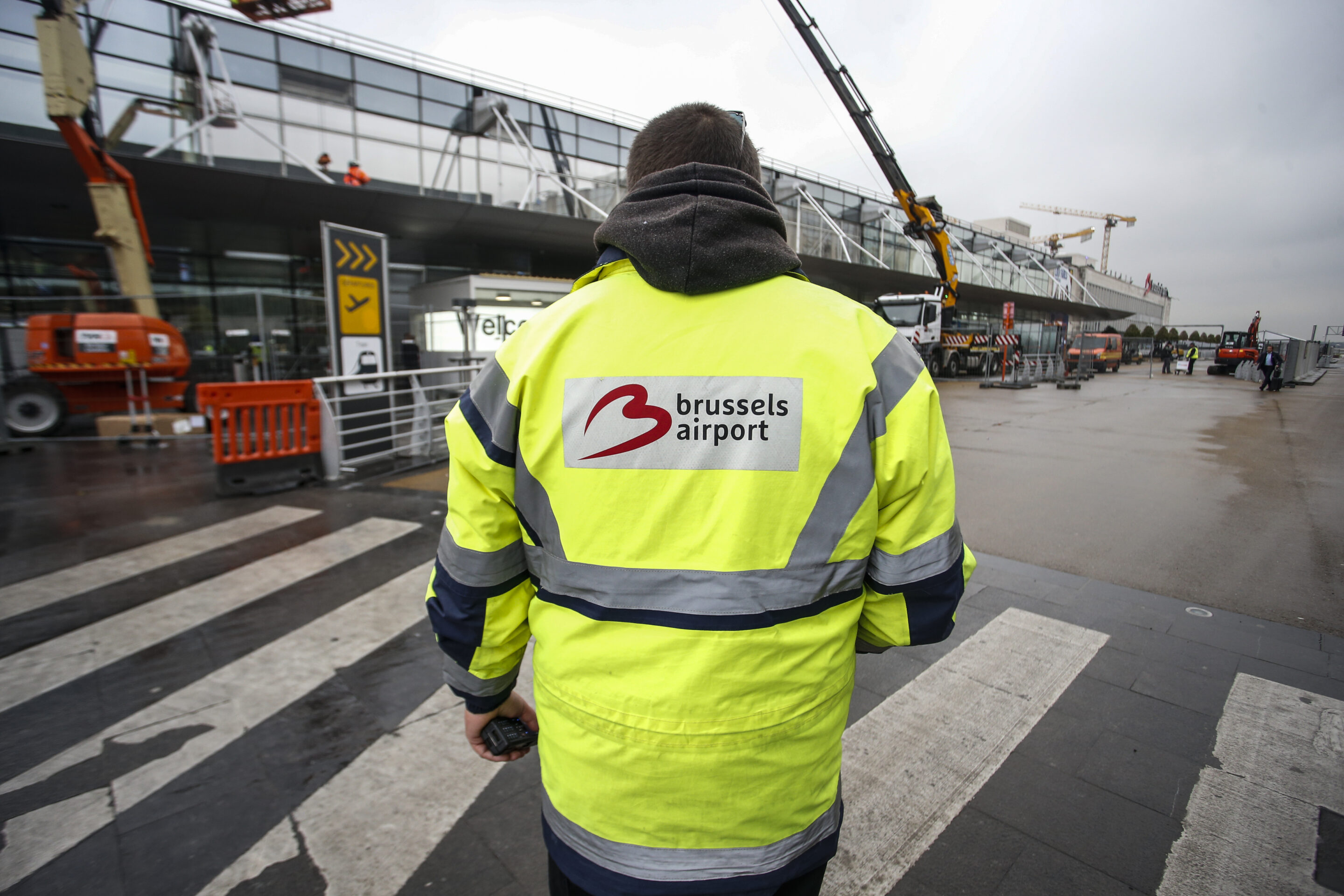Security guards in Belgium and Europe have sounded the alarm on their sector’s working conditions and will be joining thousands of other essential workers who are demonstrating in Brussels today.
According to a survey taken by UNI Global Union, 57% of security workers said they are dissatisfied with their pay and one in five feel "very unsafe" in their jobs. Furthermore, just one-third said their employer or client regularly treats them with respect.
Among these are thousands of security guards working at Belgian airports, all employed by external providers, who will be going on strike on Tuesday. This has led to Brussels and Charleroi (Brussels South) airports announcing they were cancelling all departing flights on Tuesday.
Over 1,000 protesting essential workers from all over Europe – including cleaners, security guards and food service employees – are expected to protest for an urgent reform of the EU public procurement directive at the European Quater's Place Jean Rey at noon.
Through the EU's procurement rules, private firms are contracted by public authorities to deliver goods and services, but this can have a negative effect on pay and working conditions, as procurement contracts are often given to the lowest bidder.
"Essential workers are employed on public contracts with private firms, which are mostly awarded on the principle of favouring the lowest price at the expense of decent wages and working conditions," said Belgian MEP Estelle Ceulemans (Socialist Party/S&D) ahead of the strike. "This demeaning race to the bottom must be stopped."
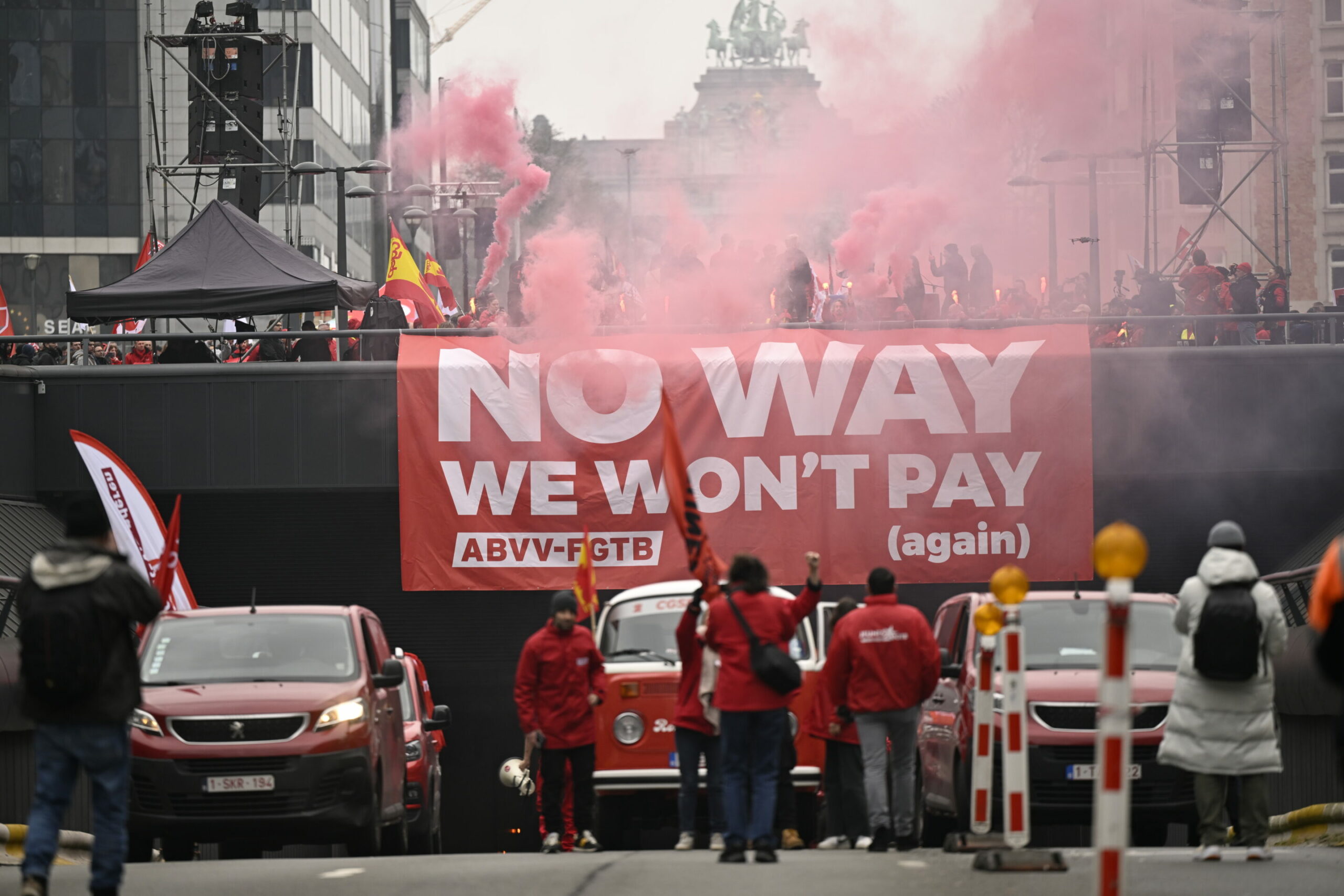
A demonstration against the European Union's plans to reintroduce austerity, in Brussels, Tuesday 12 March 2024. Credit: Belga / Laurie Dieffembacq
With public procurement amounting to two trillion euros or 14% of the EU’s GDP, nearly half of all public tenders across the EU are awarded solely based on the lowest price, according to research by the European trade union federation UNI Europa.
Their global chapter, UNI Global, released in June a report on the status of security guards in Belgium, Europe and across the world. Over 11,000 security workers from 35 countries responded to the survey, including nearly 600 working in Belgium.
Over 50% dissatisfied with salary
The findings illustrate first-hand the negative effects of the current rules of EU public procurement system on sectors like security. Those working demanding jobs are forced into having low and precarious wages, often feeling unprotected and overworked by their employers.
Globally, pay dissatisfaction is prevalent among security workers, with less than 10% saying they were very satisfied with their remuneration, with 57% of respondents saying they were either somewhat or very dissatisfied.
The situation is even worse among security guards who are employed on zero-hour contracts – which do not guarantee workers a minimum number of weekly work hours. Over 87% of "casual or zero-hours contract" security workers across the world reported being dissatisfied with their pay in the survey.
Security workers reported that they are paid lower wages than their contracts stipulate, while often also receiving irregular pay. Moreover, many called out being forced into doing overtime or pressured into overworking, which affects their health and work.
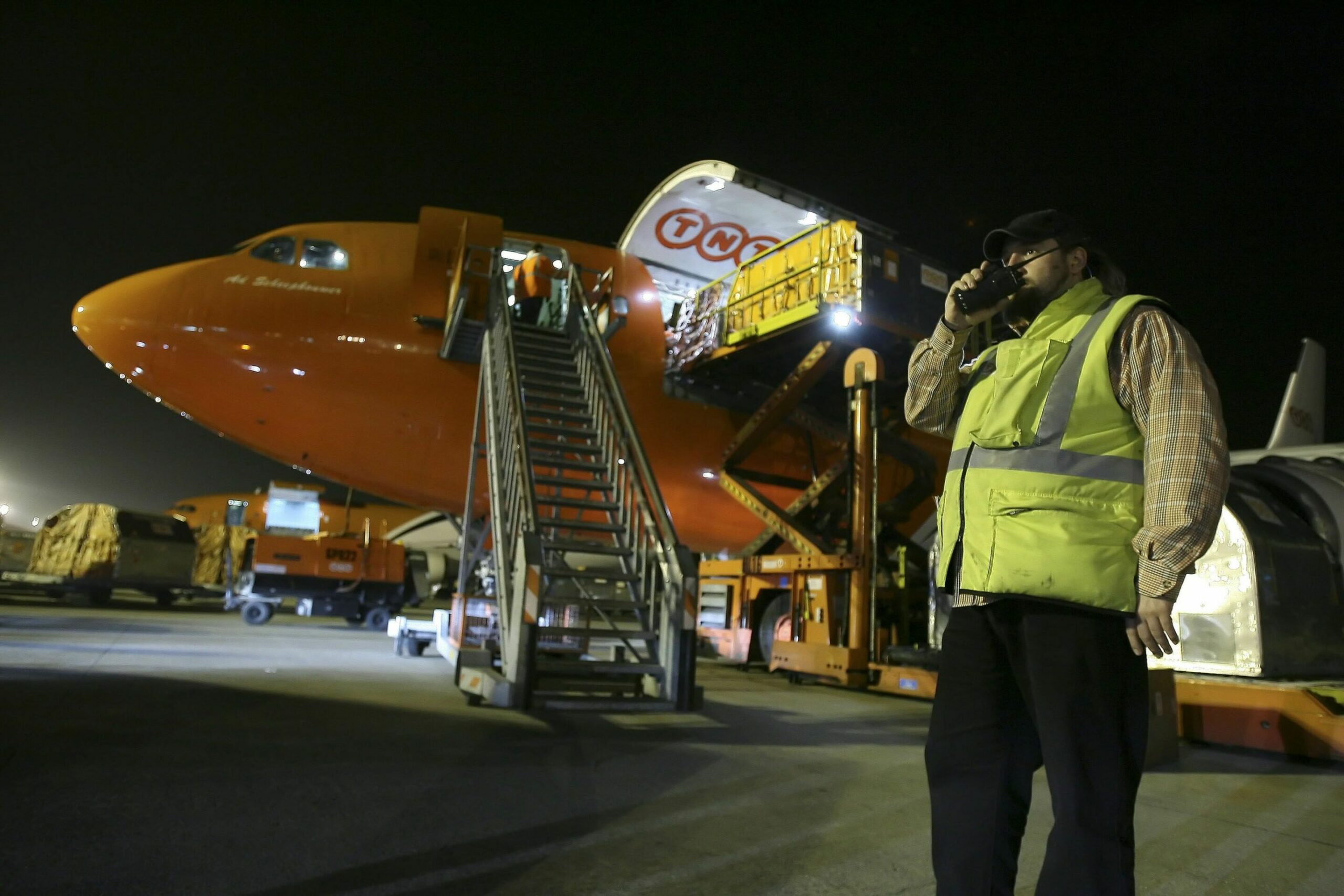
Night loading at the TNT Express Delivery operation centre at the airport of Bierset, near Liege. Credit: Belga / Eric Lalmand
"From a health point of view, there are unstable and unpredictable schedules, breaks that start in the middle of the night which do not allow us to have a restful sleep," said one anonymous respondent who works at a Belgian airport.
Long overtime hours without adequate rest contribute to chronic fatigue and stress-related illnesses, often leading to more severe health problems, the trade union federation added.
"As a guard, my main health and safety concern is fatigue and changes in pace. These two factors have a direct impact on my work. Fatigue can affect my alertness and my ability to respond quickly to emergency situations," said another security guard working multiple jobs. They added that irregular work schedules can disrupt sleep and daily routine – "which can lead to lower work performance."
Who protects security guards?
Discrimination, harassment, and violence are endemic in security work. Overall, 46.25% of respondents indicated that they had experienced harassment or discrimination on the job. There is a certain irony in security guards, who keep us safe in public spaces, feeling unsafe.
Another security guard in Belgium stated that "harassment is ubiquitous," adding that the employer and customer often choose to turn a blind eye to these incidents.
Among different types of harassment, racial abuse is the most common, with foreign-born workers globally being far more likely to report experiencing discrimination than people born in the country (60.5% to 45.1%).
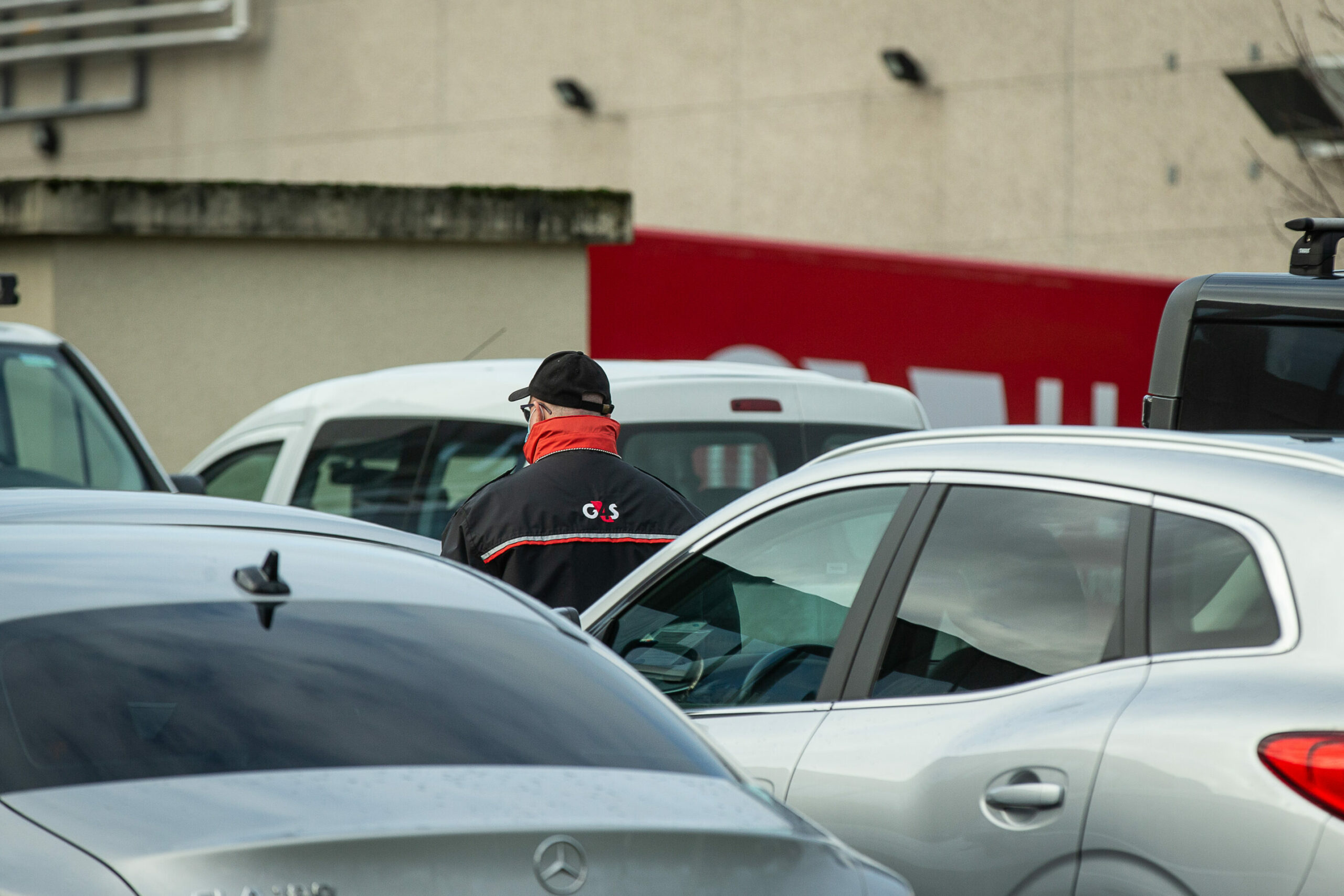
G4S guard at the Pfizer vaccine production plant in Puurs, Friday 29 January 2021. Credit: Belga / James Arthur Gekiere
"Unfortunately, I was faced with several forms of discrimination, particularly because of my origins, my religious affiliation and my age," one security guard in Belgium told researchers.
In the airport and the aviation sector, just under half (43.16%) of those surveyed said they had experienced verbal or physical harassment in their workplace. Yet the sector where it is the highest is security guards working in shopping centes, retails or supermarkets (50%).
"In my tenure as a parking attendant, I have been verbally abused," according one respondent working in Belgium. Globally, 46% of respondents working security in public spaces said they had faced some form of harassment.
Security and misogyny
Women security guards also face a much higher rate of harassment than men. Around 20% of security guards who responded to the survey were women, with the rate of women who have experienced verbal or physical harassment at work being much higher than with men (53% female vs 39% male).
"Misogyny affects 90% of women in this sector," said a female security guard who is contracted at multiple sites in Belgium. "I was harassed by men, and not only by colleagues but also passengers."
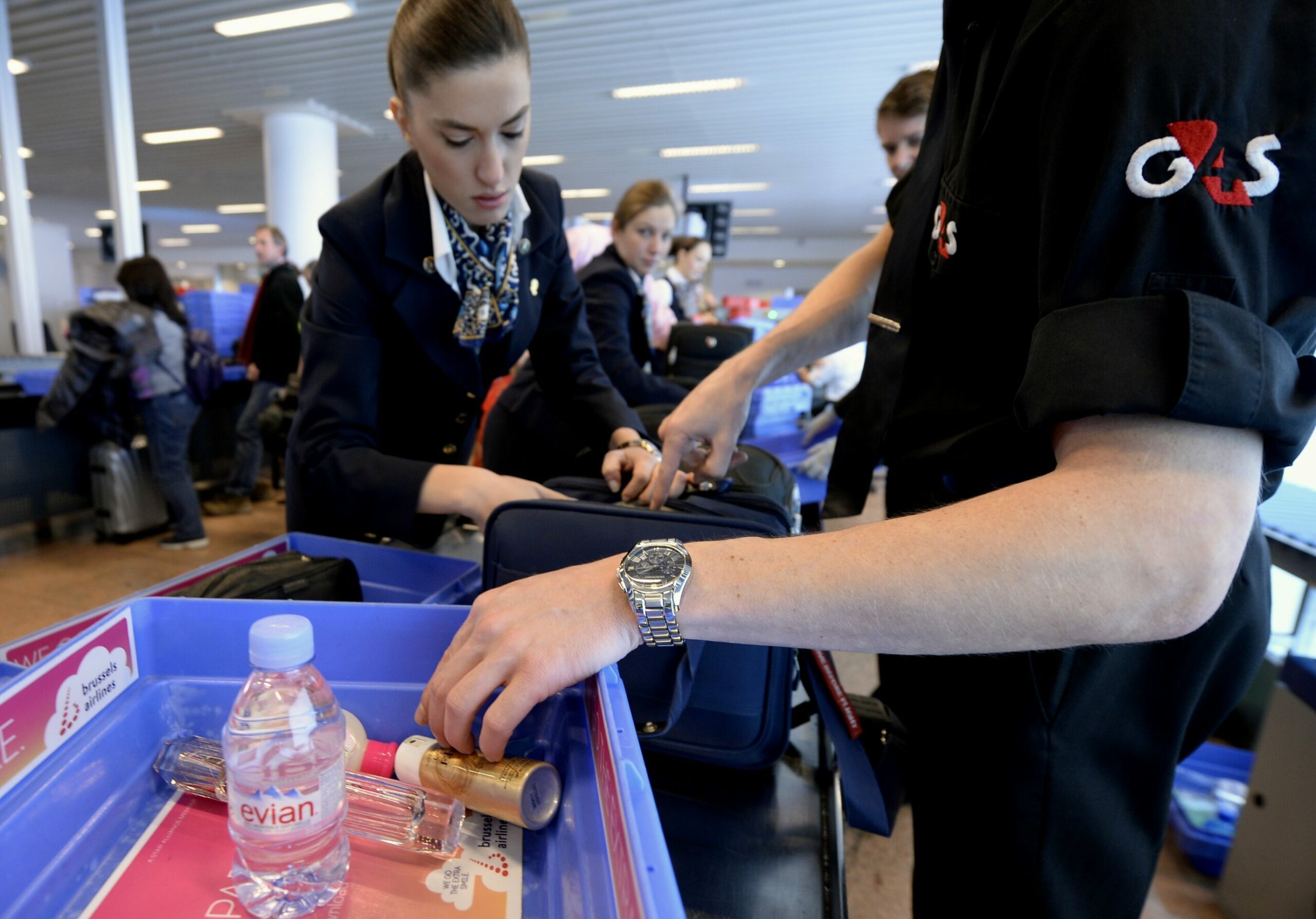
A woman security officer of G4S working at the security check of Brussels Airport, Thursday 20 November 2014. Credit: Belga / Eric Lalmand
Male colleagues and supervisors, in particular, were found to often exploit their power and position to harass the women who worked with them. In all instances, security employers, often outsourced private companies, are being called on to do more to protect staff: eight out of ten people in the survey felt that they should do more.
"There is a lack of resources to protect ourselves in cases of aggression and danger," said a diplomatic protection agent in Belgium. This lack of funding in security, driven by the current EU rules, also affects the general public. A parliamentary inquiry on the 2016 Brussels airport bombings, which killed 16 people and injured hundreds, found that various security units at the airport were underfunded and understaffed.
Yet these issues in security spill across national borders and sectors – which is why trade unions in Europe and Belgium are protesting in Brussels for a "continent-wide solution" to improve EU public procurement rules.
"In surveys we commissioned, we have heard from unions and workers about the pervasive low-wages and social precarity created by the EU's current procurement rules," Regional Secretary of trade union federation UNI Europa, Olivier Roethig, told The Brussels Times on Monday. "These problems are the same everywhere across Europe. They are caused by bad EU regulation, and therefore need an EU-wide solution."
"That is why we are calling on the Commission to turn its promise of quality jobs, fair wages and good conditions into a reality by reforming the public procurement rules. Europe deserves better than a race for the cheapest price."

